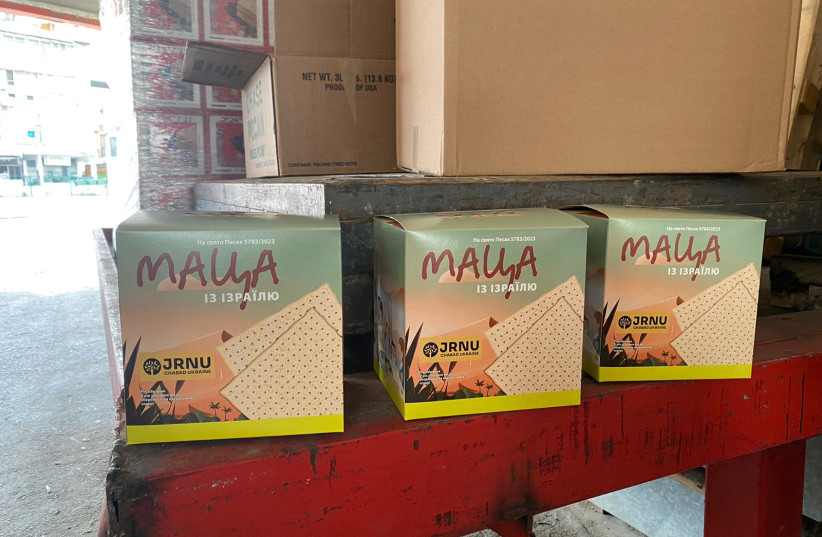Ukrainian Jews have been preparing for their second Passover since the war with Russia broke out last year. Chabad emissaries and rabbis of Jewish communities in Ukraine are preparing to organize 142 huge seders (the Passover tradition of reading traditional texts and dinner) next week for the upcoming Passover holiday. The Jewish Relief Network Ukraine (JNRU) has distributed 56,000 food packages for the Jews of Ukraine.
On seder night, every Jew will receive a personal Seder plate (a plate with a number of symbolic foods eaten or displayed at the Seder), along with matzah and four glasses of Kosher wine. In addition, the Jews of Ukraine will feast on fine Kosher foods that will be cooked in honor of the Jewish festival of freedom.
Even before the Seder, the Jews of Ukraine will enjoy kosher food packages, which will be delivered by Chabad and the rabbis of the communities, as part of a huge outreach operation.
The Chabad-affiliated JRNU organization already delivered huge quantities of food to Ukraine a month ago. JRNU bought and delivered 70 tons of matzah, 120,000 bottles of grape juice in addition to 98 tons of meat, poultry and kosher products for Passover.
JRNU claims that this "Passover operation," as they call the large project, is the largest in the history of Jews in Ukraine.

"We have done everything that was in our power, despite the war and the challenging situation, in order for the Jews of Ukraine to feel the spirit of Passover freedom this year," a source in JRNU said.
Who is JRNU?
JRNU has been supporting the network of Chabad emissaries in Ukraine since the collapse of the Iron Curtain in the early 1990s and operates within the Chabad Emissary Committee, which represents all communities in Ukraine.
These generous food and holiday arrangements will be held in synagogues and community centers across Ukraine, while in some of the bombed cities, the activities and food distribution will be held in protected areas or bomb shelters.
The major events will be held in the cities of Kyiv, Nikolaev, Zaporozhye, Kharkiv, Odessa, Dnipro, Poltava and Chernivtsi.
"We always leave room for people who come spontaneously, in addition to registration," said Kharkiv’s Rabbi and Chabad emissary Rabbi Moshe Moskovitz. "Our experience has shown that there are always local Jews who surprise us and arrive at the Seder at the last minute. Our efforts are, according to the instruction of the Lubavitcher Rebbe, that no Jew should be left behind and that everyone should have the opportunity to taste matzah and celebrate freedom."
